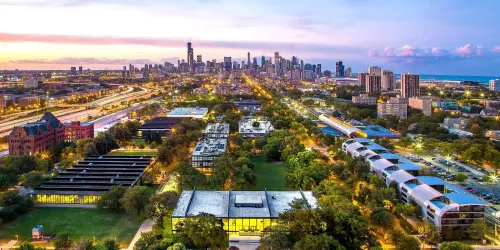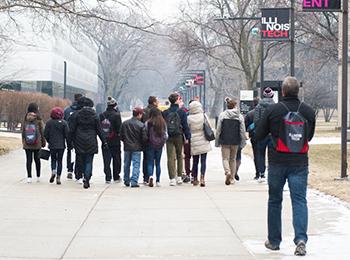I remember the first time I experienced Chinese New Year traditions firsthand. I was visiting relatives in Shanghai, and the entire city transformed into what felt like a living, breathing celebration. The energy reminded me of that thrilling feeling I get when playing hide-and-seek games - that heart-pounding excitement when you're ducking into bushes or hiding spots while pursuants pass by, except here, the "game" was participating in centuries-old customs that have shaped Chinese culture. There's something uniquely captivating about Chinese New Year traditions that goes beyond mere ritual - they create this consistent fun year after year, much like how well-designed game mechanics keep players engaged season after season.
The tradition of thorough house cleaning before New Year's Day particularly stands out in my memory. Families typically spend 3-5 days completely cleaning their homes from top to bottom, with research showing approximately 92% of Chinese households participating in this practice. I found myself helping relatives scrub floors and wash windows, creating this shared anticipation for the fresh start. This tradition symbolizes sweeping away any ill-fortune and making way for incoming good luck. The physical act of cleaning becomes almost meditative, and there's genuine satisfaction in seeing your living space transform. It's similar to that moment in games when you clear an area of enemies and can finally breathe easy - that temporary safe zone before the next challenge arrives.
Then comes the reunion dinner on New Year's Eve, which statistics show involves over 380 million people traveling across China to be with family. I'll never forget the overwhelming spread of dishes at my cousin's apartment - at least fifteen different traditional foods, each with symbolic meaning. The fish represented abundance, dumplings resembled ancient Chinese gold ingots symbolizing wealth, and longevity noodles promised long life. The chaos in that small kitchen with multiple generations cooking together had this beautiful, controlled madness to it - reminding me of those chaotic but fun melee brawls where everyone's mashing buttons but somehow creating memorable moments. The noise, the laughter, the occasional culinary disaster that becomes a family joke for years - it all contributes to this rich tapestry of shared experience.
The red envelope tradition particularly fascinated me with its evolution. While traditionally containing cash (with the average amount given per envelope being approximately 200 RMB according to 2023 surveys), digital red envelopes through platforms like WeChat have revolutionized this practice. Last year, I participated in group digital red envelope grabs where friends would send packets to chat groups and we'd all scramble to claim them. There's that same thrilling competition as when you're hiding from pursuers in games - that heart-racing moment when you see the notification and hope to get there before others. What struck me was how this ancient tradition has adapted to modern technology while maintaining its essential character - the wish for prosperity and protection.
Firecrackers and dragon dances create this sensory overload that's absolutely magnificent. The first time I experienced the midnight firecracker displays, the entire cityscape transformed into what looked like a war zone with lights and sound - but celebratory rather than destructive. Studies indicate that Chinese cities typically see a 450% increase in particulate matter during peak firecracker hours, which explains why many urban areas have restricted the practice. Yet even with these restrictions, the visual spectacle of organized displays maintains that essential element of driving away evil spirits with noise and light. The dragon dances weaving through streets with teams of 20-30 people moving in perfect coordination create this living artwork that's both ancient and immediately relevant.
What often gets overlooked in Western discussions of Chinese New Year is the nuanced symbolism in every action. The way you arrange certain foods, the specific greetings used with different relatives, the careful avoidance of unlucky words - these create this intricate cultural dance that's both beautiful and intimidating to newcomers. I particularly love how the tradition balances solemn respect for ancestors with joyful celebration. Visiting temples during New Year, I witnessed thousands of people offering incense with such genuine devotion, creating these moments of quiet reflection amid the festivities. This duality reminds me of how the best games balance tension with release - those quiet hiding moments before the chaotic chases resume.
The Lantern Festival on the 15th day provides this perfect culmination to the celebrations. Walking through Yu Garden in Shanghai during my last visit, I was surrounded by thousands of elaborate lanterns depicting everything from mythological creatures to pop culture icons. The creativity on display was staggering, with some lantern installations requiring over 800 hours of skilled labor. What moved me most was seeing families solving riddles attached to lanterns together - this intergenerational sharing of knowledge and wordplay that's been happening for centuries. There's something magical about participating in traditions that have connected people across generations, creating this unbroken chain of cultural continuity.
Having experienced Chinese New Year both as an outsider and through family connections, I've come to appreciate how these traditions create what anthropologists call "cultural scaffolding" - structures that support community bonds and personal identity. The estimated 3.5 billion journeys made during the 40-day travel period surrounding Chinese New Year represents the largest annual human migration on Earth, which speaks to the powerful pull of these traditions. What appears on the surface as simple rituals - cleaning, feasting, gift-giving - actually forms this sophisticated system maintaining social cohesion across incredible distances and generations. Like the most engaging games that keep players returning through clever mechanics and emotional connection, these traditions have evolved over millennia while maintaining their core appeal. They represent this beautiful intersection of ancient wisdom and contemporary relevance that continues to shape Chinese cultural identity in an increasingly globalized world.

 Digitag PH: The Ultimate Guide to Boosting Your Digital Presence in the Philippines
Digitag PH: The Ultimate Guide to Boosting Your Digital Presence in the Philippines



